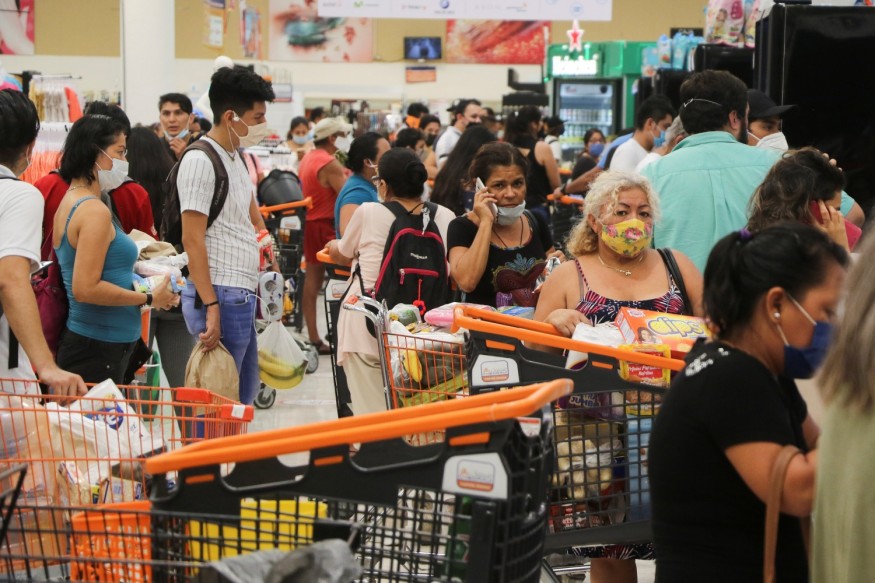It is essential to be ready with crucial plans and preparations needed for this year's peak Atlantic hurricane season and other natural disasters.
Peak Season Approaching
The peak of 2020's record Atlantic hurricane season is coming to the East, along with the raging wildfires in the West.
According to Tampa, Florida veteran emergency manager Chauncia Willis, survival plans must be made before the storms come.
Waiting at the last possible minute, or thinking that the disaster will not happen to you personally, may mean getting to live or suffer and die.

READ: Meteor Fireball Lights up Mexico Sky Together With Arrival of Hurricane Delta and Minor Earthquakes
Same Story Every Hurricane Season
Willis is the Institute for Diversity & Inclusion in Emergency Management CEO and co-founder. During a hurricane, a particular experience is still vivid in her mind when a desperate phone call asked responders to look into their mother, who did not evacuate. The team was helpless because the storm winds were over 40 mph already, and the responders' life will be in danger if they went out.
Protecting the house (which you cannot do anyway) or refusing to pay for an animal shelter is no good excuse not to evacuate.
Waiting to evacuate until it is too late will leave you without many options. Despite this, Willis repeatedly hears the same story during the yearly hurricane season.
Providing Support
Willis created her Institute together with Curtis Brown to give support for vulnerable sectors and populations. Lack of emergency management representation can lead to bad outcomes, she says. Her Institute educates and ensures that all will receive unbiased emergency management response.
READ ALSO: Hurricane Delta: Hits Yucatan Peninsula, Heads to US Gulf Coast
Below Are Some Advice on Preparing for Disasters
Have an evacuation plan
Willis recommends identifying your vulnerabilities. Know if your area is flood-prone, if it has limited entry and exit points, and how feasible it is to navigate hazards.
She says that weather forecasters and officials' forecasts and advice should be heeded, including evacuation recommendations. Allow for enough time in evacuating; map the exit route before traveling, and prepare several alternatives.
Provide enough time to secure the house, the pets, furniture, and plants. Remove potentially dangerous items that can hurt others if they turn into projectiles during the storm.
Plan your destination, preferably with friends and family. Public shelters have to be the last option. When you decide to go to shelters, determine which items are allowed or not. Animals, for example, are not permitted.
Coordinate with your family how to communicate if you ever become separated and out of reach. Communicate your situation regularly to assure your loved ones. Tell them to do the same.
Prepare your go-kit
Include critical items for survival as well as everyday use. Do not forget the following:
- one week's worth of water and non-perishable food
- full gas tank
- duplicate car keys
- cash
- two weeks' medical supplies and medications
- phones, batteries, phone chargers, power banks
- personal hygiene products like hand sanitizer, shampoo, wipes, soap, feminine products, toilet paper, face masks, diapers, first-aid kit, among others
- battery-powered radio
- rain gear
- flashlight
- personal and property documents and papers
- bank and credit card info, identification cards, contact numbers
- maps
- other stuff you deem critical and essential
- emergency preparedness checklist by the American Red Cross
- evacuation planning info from FEMA
You can still be prepared even on a tight budget. You may use used sterilized plastic drinking bottles for stocking drinking water. Local food banks have cheap food. Be creative
Register for special needs and transportation
If you have a particular disability or medical needs or have no reliable transportation, you should register early on with the local government so that they can arrange them.
A lot of people wanted to evacuate during Hurricane Katrina but had no means to do so.
Don't take the threat lightly
According to Willis, natural disasters are more dangerous now due to climate change. Hurricanes, storms, and tornadoes are a lot more frequent and powerful now and have bizarre behavior not seen before. They now also show up in areas they have not been previously seen in.
Willis says that emergency responders have become constrained by the ongoing pandemic, needing to modify staff and capacities of shelters. The COVID-19 pandemic changed all aspects of disaster response and preparedness.
You have to do everything you can ahead of time to ensure you have essential plans and preparations in place for natural disasters during the Atlantic hurricane season.
READ NEXT: Venice Stops Flooding and Holds Back Sea Waters with Mile-Long Barrier Network
Check out more news and information on Climate Change on Nature World News.
© 2026 NatureWorldNews.com All rights reserved. Do not reproduce without permission.





